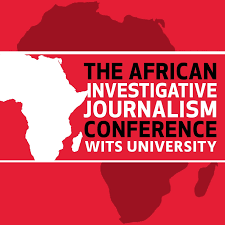Great insights and tips have been shared by speakers at the on-going African Investigative Journalism Conference. We bring you some of the top tweets on various aspects of investigative journalism
Story writing
“Be patient with your story. Take your time, check the story, go back and check the story again. To provide a reliable story that is truthful.” – @luisnhachote
“The stories need to be told. Go out there and tell the story.” – @kikimordi
“For a very long time, I felt there was so much that we could’ve done. For the things that we saw, I felt like there was a whole lot more to expose. If I were to change anything, I would apply more passion.” -@kikimordi
Oluwatosin: “Let’s collaborate as journalists. It is the only way that we can move forward and create stories.”
Online security
“Weak passwords is one of the biggest ways companies and people get hacked and are victims of phishing. Using phrases you like to use as a number is a great way to create a strong password.” -@deslatham
“News organizations need to have two-factor authentication on all your accounts. “ – @deslatham
“Reduce information about journalists that is available online. Whether you’re reporting on lifestyle or politics, you become a victim. So, reduce any information about you which can be used against you.” – @deslatham
Data Reporting/ Fact-Checking
“We have been using this conveyer belt kind of journalism. But we need to tell our readers what to expect beforehand. We need to work with Data Scientists that will assist us in this.” – @ashamwilu
To know that information you read is reliable, is to think critically, ask where the data is coming from. Pull the data apart and try to understand what’s happening. “ – @TarynYoung3
“Fact-checking is incredibly important. Equally important is the reality check – what is it that people believe around them and not what is actually factual.” – @idajooste
“Stories can be found in data by experimentation. You need to find a way to play with data. You need to make use of tools like Google Sheets to do this.” – @alastairotter
Never assume that the person who posted it is the owner or author. Tracking the original source is often difficult to do and sometimes whoever took the photo or video doesn’t want to be found. Doesn’t necessarily make the content untrustworthy #AIJC2020
Research
“We need to have journalists and researchers work together in order to enhance the reporting of the research.” – @TarynYoung3
“When looking at research for consideration, you need to check for bias – the deviation from the truth. Then check how big the study was.” – @TarynYoung3
Health Reporting
“Health reporting is particularly important because it is sometimes the difference between life and death. Health reporting is more systematic reporting than it is event reporting.” – @ferialhaffajee

